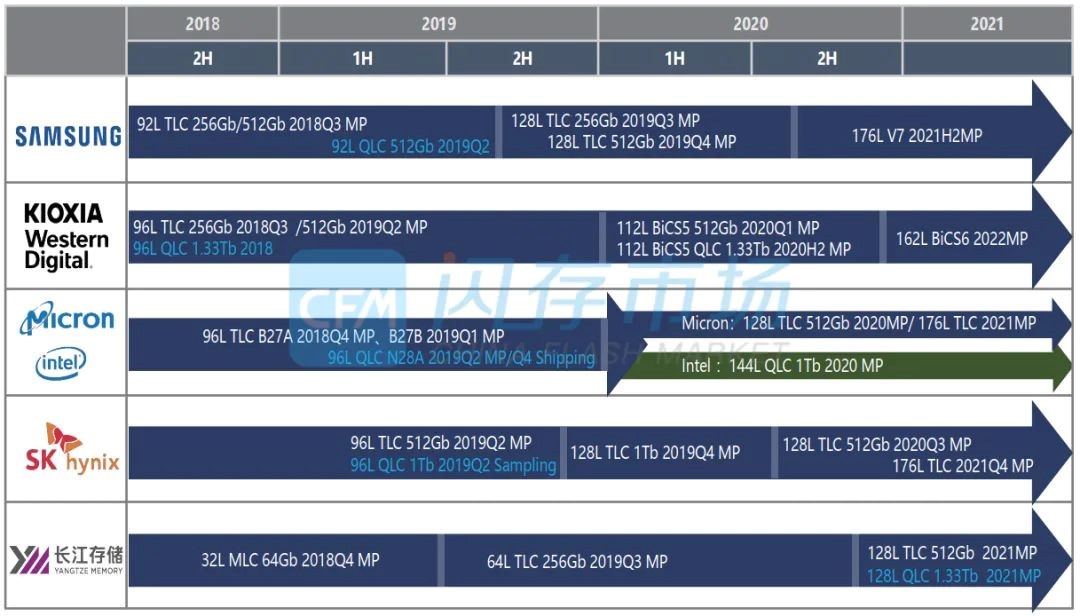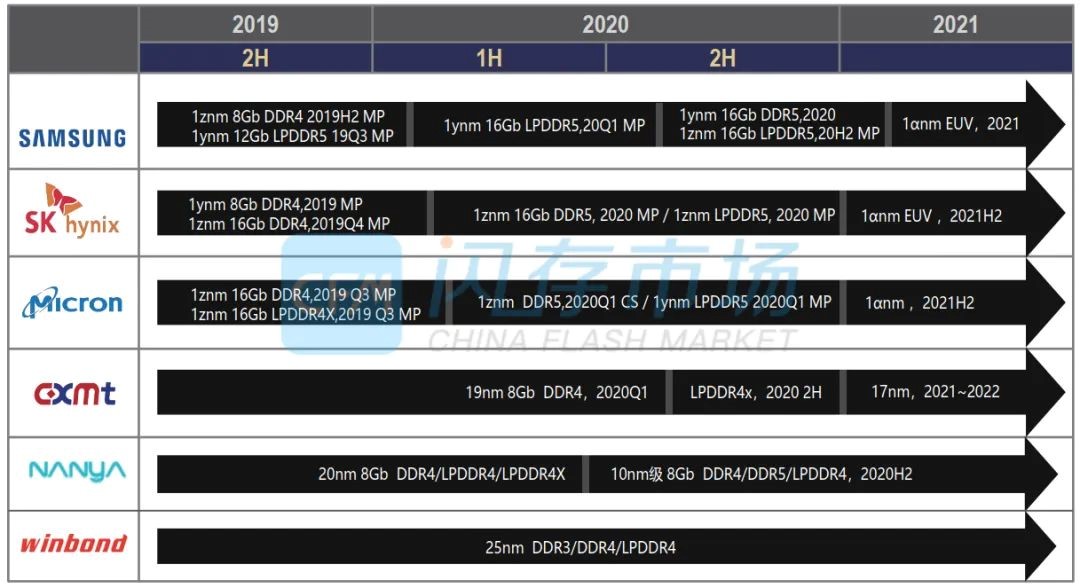News
Longsys Has Annual Revenue Exceeding RMB 9 Billion and Will List on the SZSE - What "Powerful Weapons" Do They Have?
2021.11.17
Foreword
China was late in developing its semiconductor industry. Front-end processes such as wafer design and manufacturing are subject to high technical barriers, huge capital investment, and long payback cycles. As a result, most of the early Chinese semiconductor companies stayed clear of front-end processes and established their businesses by engaging in back-end packaging, trading, and modules.
Longsys, the focus of our discussion today, is a storage industry leader that has emerged from Chinese reform, opening up, and modernization. Longsys was founded in 1999, when Shenzhen had become the most vibrant area for electronic components trading in the Asia-Pacific region. By seizing this historic opportunity, Longsys has evolved into an industry leader. According to data disclosed earlier this year, Longsys is expected to exceed RMB 9 billion in revenue this year making it one of the dominant forces in the industry. In June this year, the Shenzhen Stock Exchange formally accepted the application of Shenzhen Longsys Electronics Co., Ltd. for listing on the Growth Enterprise Market (GEM).
ChinaFlashMarket exclusively interviewed Longsys's co-CTO to discuss what product and market plans Longsys has for its upcoming entry onto the stock market for this exciting period in the company's history.
1. Over 400 patents, two brands, and four product lines covering all application markets
Longsys is undoubtedly an industry leader in the Chinese storage market. After more than 20 years of development, the company now specializes in the design, development, and sales of RAM and flash memory products. It has four product lines: embedded storage, solid-state drives, mobile storage, and memory modules. Additionally, Longsys owns FORESEE, an industry storage brand, and Lexar, an international premium consumer storage brand.
The CTO introduced, "FORESEE and Lexar target different markets. FORESEE focuses on the business market, delivering high-quality products to OEMs and industry customers. It has four product lines: embedded storage, mobile storage, solid-state drives, and memory modules. These cover industry, industrial, enterprise and automotive applications, which makes FORESEE capable of providing integrated storage solutions.
Lexar is a premium international brand for the consumer market, specializing in professional photographic data storage, mobile storage, and personal system storage. To meet worldwide consumer storage needs, Lexar has launched a variety of products such as high-capacity and high-performance SSDs, memory modules, SD and Micro SD cards, and USB flash drives. Lexar also provides innovative premium products, such as fingerprint flash drives, NM cards, and encrypted SSDs."
Today's storage market has long since ceased to be a "paradise" for speculative traders. It would be very difficult for a company to survive without strong technical research and development support. The CTO said, "Over the years, Longsys has insisted on independent research and development and has accumulated extensive technology experience. We have the leading algorithm design, firmware development, hardware and packaging design, and complete testing capabilities."
According to Longsys's prospectus, as of June 30, 2021, the company had 426 valid Chinese and overseas patents (103 outside of China), including 165 invention patents. Longsys also owned 65 software copyrights and twice received the Excellence Award at the WIPO-CNIPA Award for Chinese Outstanding Patented invention and Industrial Design.
2. As storage technology continues to evolve, downstream brand-name module manufacturers enhance their strengths to meet the opportunities and overcome challenges.
The storage market inevitably will have a bright future. Driven by mobile Internet, IoT, cloud computing, and other technologies, the volume of data has increased exponentially. The total worldwide data volume has entered the ZB era, driving the rapid development of storage technology.
According to ChinaFlashMarket statistics, all major manufacturers made substantial progress in 100+ layer 3D NAND technology in 2020. The Samsung V6 has been used in consumer and data center markets. Kioxia's and Western Digital's 112-layer BiCS5 products have sold very well. Intel also launched a 144-layer product at the end of 2020.
For next-generation flash technology, Micron and SK Hynix have launched their 176-layer 3D NAND products respectively. Samsung mass-produced seventh-generation V-NAND products using dual-stack technology in 2021. Kioxia and Western Digital will launch their 162-layer BiCS6 products in 2022. Yangtze Memory also successfully mass-produced 128-layer 3D NAND products in the second half of 2021, enabling it to narrow the gap with international manufacturers.
3D NAND Technology Development

Source: CFM
In the DRAM field, Samsung, SK Hynix, and Micron have all mass-produced 1z nm DRAM products and released next-generation 1α nm DRAM technology. CXMT mass produced its first-generation 8Gb DDR4/LPDDR4X products in 2020 and plans to launch its next-generation DRAM products next year.
DRAM Technology Development

Source: CFM
With rapid technology development, along with increasing storage capacities and performance, product costs are decreasing, and opportunities for new applications are growing. It is essential for brand-name module manufacturers to be able to grasp these market opportunities.
In this regard, the CTO said, "To meet the upcoming market challenges, Longsys has accumulated extensive technology development experience. First of all, in the NAND flash memory field, as the number of layers increases, the reliability and service life of memory cells decreases. Longsys is competitive in managing NAND flash data access by using algorithms and firmware with fully independent intellectual property rights. In the DRAM field, Longsys uses self-developed test systems to test DRAM products for aging, compatibility, and reliability. Additionally, while products are JEDEC compliant, Longsys also provides customized technical services to industry customers. These specialized testing services include chip simulation testing, signal integrity testing, failure analysis, high and low temperature testing, aging testing, etc."
3. Longsys develops emerging markets based on mainstream markets.
In the current storage market, embedded and SSD products, which are mainly used in smartphones, PCs and servers, are the mainstream storage products. According to ChinaFlashMarket data, embedded products consumed 35% of the total NAND flash capacity in 2020, SSD products consumed 51%, and memory cards and UFD products consumed 9%.
As application demand increases, the requirements for storage capacity, performance, and power consumption continue to rise. Embedded storage chips have evolved from eMMC to UFS 2.1 and UFS3.1. SSDs have evolved from SATA to PCIe 3.0 and PCIe 4.0. Currently, PCIe 5.0 is being developed.
The Longsys CTO said, "In the embedded storage products market, Longsys's industry brand - FORESEE - can provide a full range of products including eMMC, UFS, uMCP, eMCP, and SLC NAND. In addition, Longsys has developed innovative products and technologies to meet customer needs. For example, we have recently launched AO technology for embedded storage products. This technology can be used to significantly improve mobile flash memory performance and address the problem where Android slows down after long periods of operation. We have also launched BGA SSD and Mini SDP products. The Mini SDP is an innovative way to package all peripheral components through integrated SSD module packaging, which has transformed the traditional PCB production model into a modular production in the packaging plant."
Furthermore, regarding the data center, cloud computing, and intelligent vehicle fields that have been broadly discussed in recent years, he said, "Longsys has made early preparations. In the server market, our R-DIMM products can now be mass produced and delivered. In terms of flash memory, we have an enterprise SSD under development and is expected to be delivered next year. For the automotive storage market, Longsys moved quickly to establish a dedicated automotive product R&D team. We have plans for a series of automotive products, including eMMCs, UFS chips, and SSD products. Longsys's automotive eMMC products are compliant with AEC-Q100, the automotive electronics industry standard system, and can operate in a wide temperature range between -40°C and 105°C."
Conclusion
From originally engaging in the trade of storage products, Longsys has now established a global structure, with branches in Shenzhen, Zhongshan, Shanghai, Beijing, Chongqing, Hong Kong SAR, Taiwan, the United States, Europe, and Japan. In addition to the Zhongshan Storage Industrial Park, Longsys has also purchased land in the core area of the Dishui Lake Science and Innovation Headquarters Bay in the Lin-gang Special Area of China (Shanghai) Pilot Free Trade Zone. The land will be used for the development of enterprise SSDs and industrial storage products. The construction commencement ceremony was held in December 2021. The project is expected to be completed by the end of 2024 and will be able to accommodate more than 800 R&D staff. This project, which integrates R&D offices, professional storage experiments, and storage product demonstrations, will be an important component to support Longsys's long-term growth strategy.
(Source: ChinaFlashMarket, published on November 17, 2021)
Previous FORESEE Launches Automotive eMMC to Meet Market Efficiency and Stability Need 2021.06.03
Next FORSEE PCIe SSD that is Applicable to High-Performance PC Devices 2022.07.05
we give our all
Phone:+86-13510641627
WeChat:Longsys_electronics
E-mail:marcom@longsys.com

